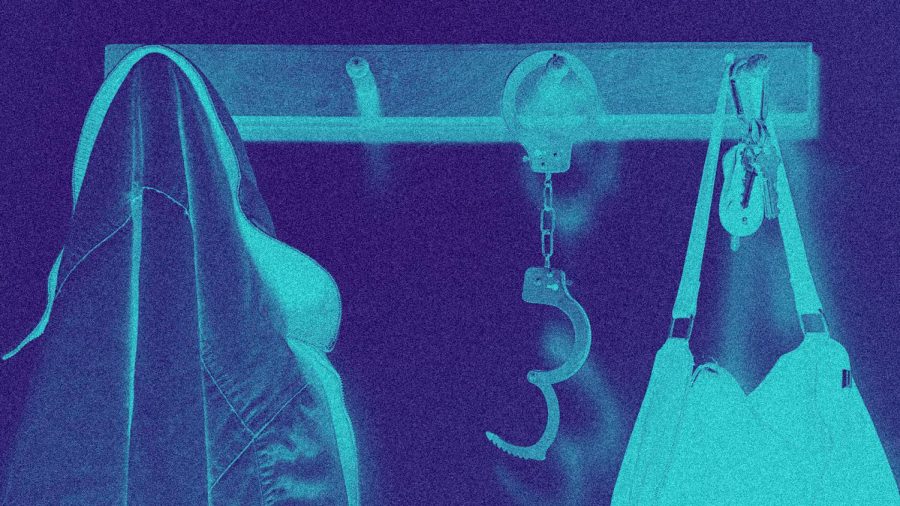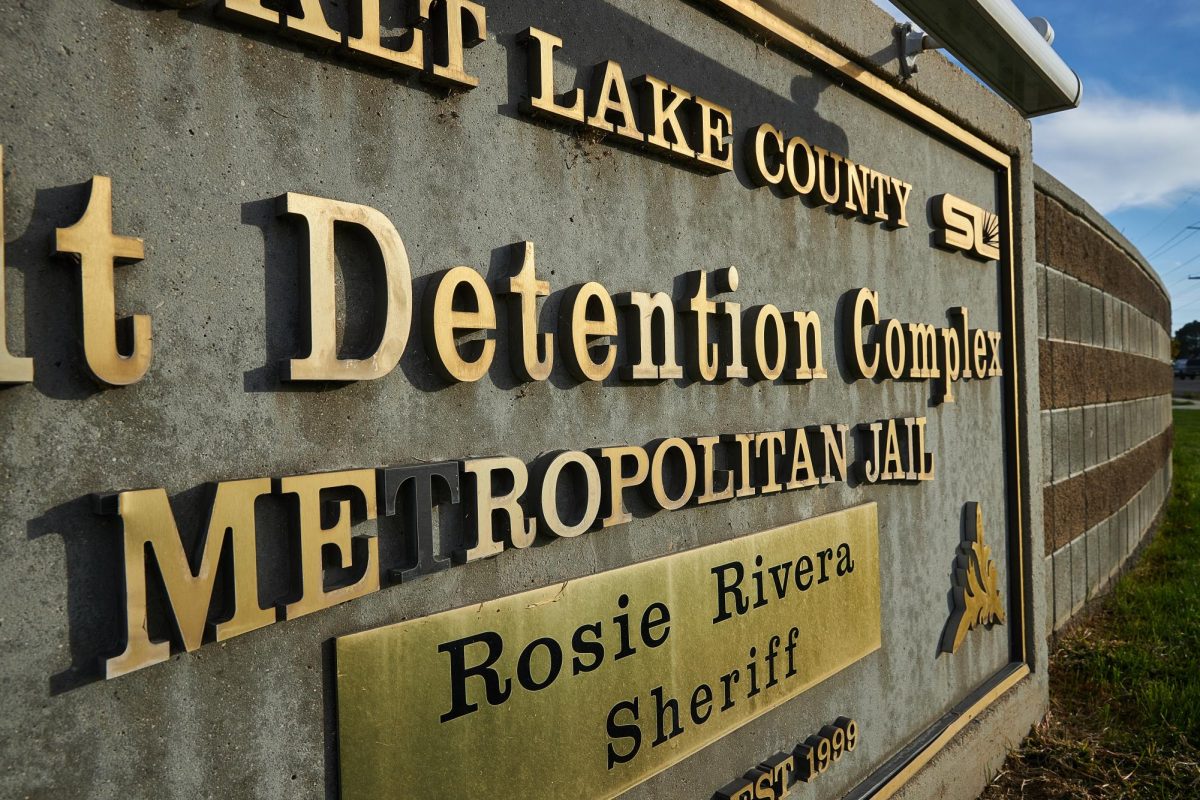Buening & Cushman: We Need to Start Supporting Prisoners
(Graphic by Sydney Stam | The Daily Utah Chronicle)
August 25, 2021
Following reforms that allowed D.C. inmates to vote, D.C. elected its first incarcerated official, Joel Castón. Castón has been incarcerated for 26 years for killing a man as a teen, but now he has a second chance.
Giving prisoners support and focusing on rehabilitation rather than punishment can truly change their lives. However, most prisons today offer little support to prisoners, making it hard for inmates to reintegrate into society and build a successful life after their sentence. We need to replace “tough on crime” policies with humane prison reforms to reduce recidivism rates and offer more resources for mental health treatment.
Dehumanization
Prisons, as they function now, dehumanize incarcerated people. Stripped of many freedoms, prisoners are not allowed to wear their own clothing and are often identified by a number rather than their own name. This treatment does not value prisoners as individuals. Consequently, prisoners experience high levels of stress — heightened by their lack of access to emotional or financial support.
Prisoners are largely unable to interact with their support systems, whether that’s family, friends or sponsors. Some family members pay travel expenses to visit incarcerated loved ones, which can be unaffordable. Many rely on calls to stay in touch with their jailed family members, but even that can be expensive.
To call her son in county jail, one Michigan mother spent nearly $15,000 over two years. Any person experiencing the severe mental degradation of a prison sentence needs support from people in their life to reestablish normality after prison, but right now they simply don’t have that.
Prisoners also lack access to financial resources. Prisoners are exploited for their labor in jail. They do not have the same work protections that you and I do. They earn just dollars a day from their work, far less than minimum wage.
From 2001 to 2017, prison wages in most states actually decreased. Most prisoners spend their small earnings in the prison store, to cover other costs of incarceration or to support their family from inside jail. Prisoners have no substantial way to earn money to support themselves after their time. In many cases, they leave prison only to enter poverty. This can redirect them back to prison as poverty creates desperation.
Tom Ross, the executive director of the Commission on Criminal and Juvenile Justice in Utah and a former police officer of 34 years, sat down with us to discuss this and other criminal justice issues. He believes that “the best criminal justice system possible will limit the numbers of people coming into it.” By limiting resources and support for incarcerated people, we fail to create a pathway for reintegration into society. As Ross put it, “We’re much better off finding ways to help them integrate than to punish them by locking them away. And then one day they’re lost out there — starting over again.”
Mental Health As a Contributor
Incarceration is also more likely to affect people with mental health problems. Each year, 1.2 million people struggling with mental illness sit in U.S. prisons. Mental illness can act as a contributor to incarceration for many of those people. As Ross explained, “Jails became kind of the de facto fallback for mental health,” when the United States rightfully moved away from insane asylums. But jails lack the resources to treat mental health conditions. We made a mistake in not retooling and establishing effective treatments in place of asylums. Drug abuse also falls into this category, as addiction is inextricably linked to mental illness.
Since the Nixon-Reagan-era war on drugs began, drug incarceration has led to a 500% increase in U.S. imprisonment over the last 40 years. Unsurprisingly, we have the highest incarceration rate in the world, with 639 of every 100,000 residents in prison.
People struggling with drug addiction often face charges before they have access to addiction resources. When that happens, as Ross said, “A lot of that damage is already done. We’ve already pushed them down a deeper hole. They lose jobs [and] housing.” People struggling with mental health and addiction need support to overcome those struggles, but our prisons are not offering any.
A Pathway Forward
While it isn’t feasible to completely rework our prison system overnight, we need to start implementing humane prison reforms that will reduce recidivism rates and prevent incarceration to begin with. As Ross stated, “The better job we do on the front end, the much easier it’s going to be for us to manage on the back end.” So, how do we do that?
Ross presented a promising improvement in a pilot program he helped launch in Davis County a year and a half ago. This program allows law enforcement the option of taking somebody immediately and voluntarily to treatment, bypassing criminal charges when possible. “Overwhelmingly, it’s changing how we get them into treatment in a very positive way.”
Still, in 2015, at least 25% of fatalities by police officers were people who suffered from acute mental illness, making this a matter of immediate safety as well. The Davis County program needs to be replicated across the state to help save lives. It also needs improvements in crisis training and the involvement of mental health experts and social workers. Additionally, we need to give prisoners resources for emotional and financial support. This means providing prisoners with rehabilitation opportunities during and after their imprisonment, more access to loved ones and sponsors, better work opportunities, fair wages and practices like work releases.
By giving them less care, support and access to resources, we devalue those who have committed crimes and remove pathways to rehabilitation. Prison sentences should serve to bring forth benefits for the incarcerated and society. We need a justice system that keeps people out of prison and that will only happen if we give prisoners a support system.











ColoradoRob • Aug 29, 2021 at 9:29 am
If you’re going to complain about the incarceration rate, then you might want to put a bit more thought into making prisons more friendly and supportive. The more that happens, the more people will be picking incarceration as a lifestyle choice.